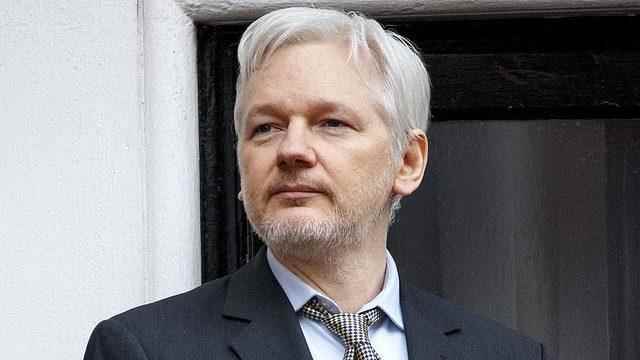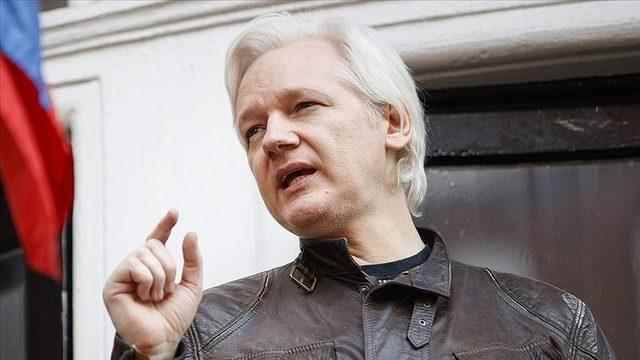A British criminal court has ordered the extradition of WikiLeaks founder Julian Assange to the United States.
With the decision of the Westminster Magistrates’ Court in the capital London to extradite, the file will go to the Minister of the Interior, Priti Patel, for a political decision.
If Patel approves the extradition, Assange’s lawyers are expected to object.
As the trial continued, Assange’s supporters demonstrated in front of the court. Former Labor Party leader Jeremy Corbyn, who made a speech here, called on the court to release Assange.
Speaking after the verdict, WikiLeaks Editor-in-Chief Kristinn Hrafnsson stated that the sentence is equivalent to the death penalty and said, “Now Julian’s life is in the hands of Priti Patel and Boris Johnson (Prime Minister). They have the power to stop this (return) and stop this attack on freedom of the press.” said.
“THIS IS A POLITICAL CASE”
Stella Moris, Assange’s wife, whom he married last month, also underlined that today’s decision disturbs him, albeit a formality, and said, “The UK has no obligation to extradite Julian Assange to the USA. In fact, it has to stop this extradition in accordance with its international obligations. Boris Johnson and Priti Patel. “Don’t extradite Julian to the country that planned to kill him. Boris Johnson and Priti Patel can stop it at any moment. They can even stop it today.” he said.
Asking Johnson and Patel to do “the right thing”, Moris said, “They can apply Article 4 of the US-UK extradition treaty, which prohibits extraditions for political crimes. They are currently in violation of their own agreement. This is a political case. It has moved directly into the political arena with the magistrate’s decision.” used the phrase.
CAN BE JUDGED WITH 175 YEARS
It is stated that Australian-born Assange, who has been detained in the UK since April 2019, could face 175 years in prison if extradited to the USA.
Washington wants to prosecute Assange for espionage, who is accused of publishing thousands of secret documents regarding the “war crimes” actions of the American army in Iraq and Afghanistan.
Assange supporters say the case is a serious attack on press freedom.

ASSANGE’S CASE PROCESS
WikiLeaks, founded by Assange, released many classified documents in 2010, among which evidence the crimes committed by the USA in Iraq and Afghanistan.
Assange, whom the USA accused of espionage and wanted his extradition, sought refuge in Ecuador’s London Embassy in June 2012, while his extradition to Sweden was on the agenda for the lawsuits filed against him on charges of rape and sexual harassment.
Assange was detained from the Ecuadorian Embassy in London on April 11, 2019, and arrested for “violating the conditions of release on bail” and placed in Belmarsh Prison in London.
The court sentenced Assange to 50 weeks in prison for this crime. It was decided that Assange, who had served his 50-week sentence, would remain in detention within the framework of his extradition request.
After the hearings, on January 4, 2021, the US extradition request was rejected on the grounds that Assange was at high risk of suicide and would be subject to special administrative measures in a US prison, particularly as he was “at real risk” because the intelligence community was hostile to him. The United States objected to the decision.
To win the appeal, the United States had pledged that the WikiLeaks founder would not be held in maximum security prisons and could serve his sentence in his home country of Australia.
The defense team, on the other hand, emphasized the safety of life, citing the news that the CIA planned to kidnap and kill Assange while he was hiding in Ecuador’s London Embassy.
On December 10, 2021, the Supreme Court found the guarantees to be sufficient and overturned the lower court’s decision and ruled that Assange could be extradited to the United States.
Thereupon, Assange’s defense team applied to the Supreme Court for permission to move the case to the Supreme Court.
The Supreme Court, with its decision on March 14, rejected Assange’s objection to the decision that he could be extradited to the United States.
After the said decision, it was stated that the case file would first go to the local court and then to the Minister of Interior Priti Patel for the final decision.
AA
